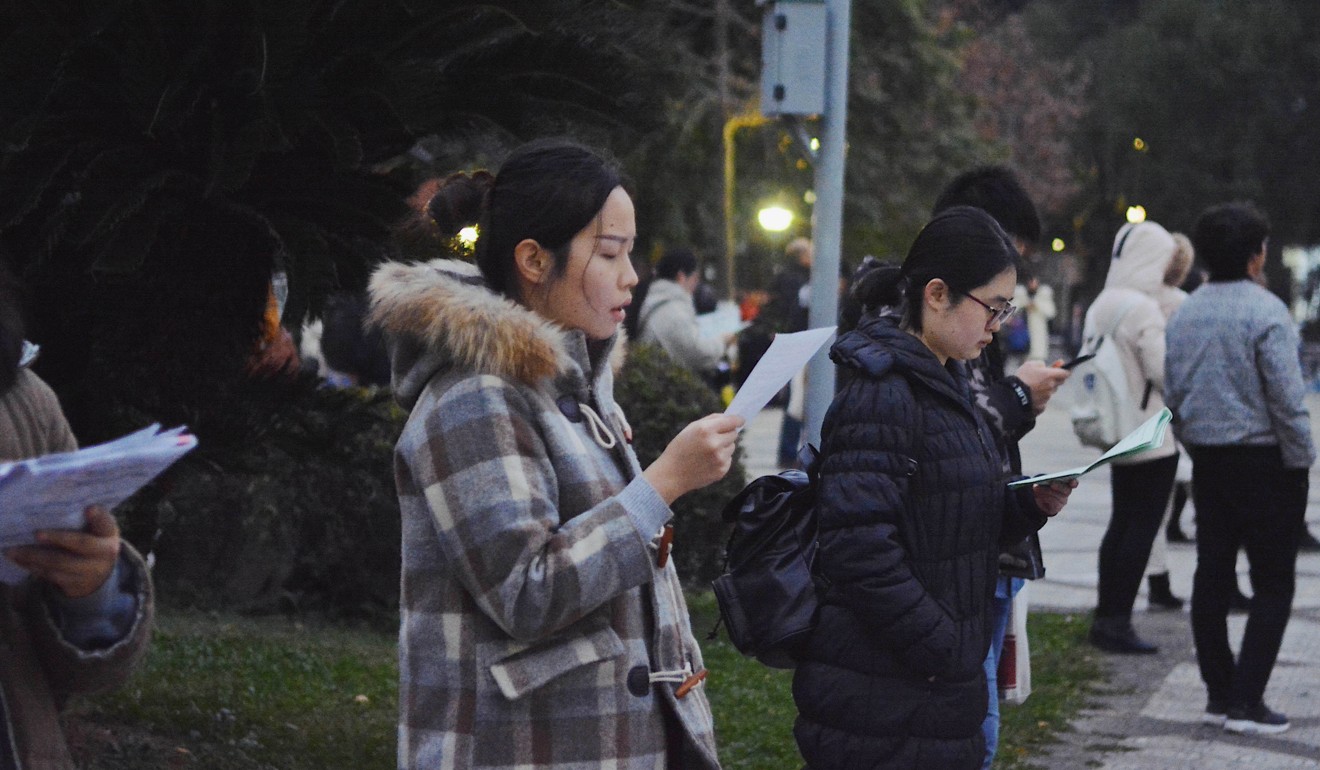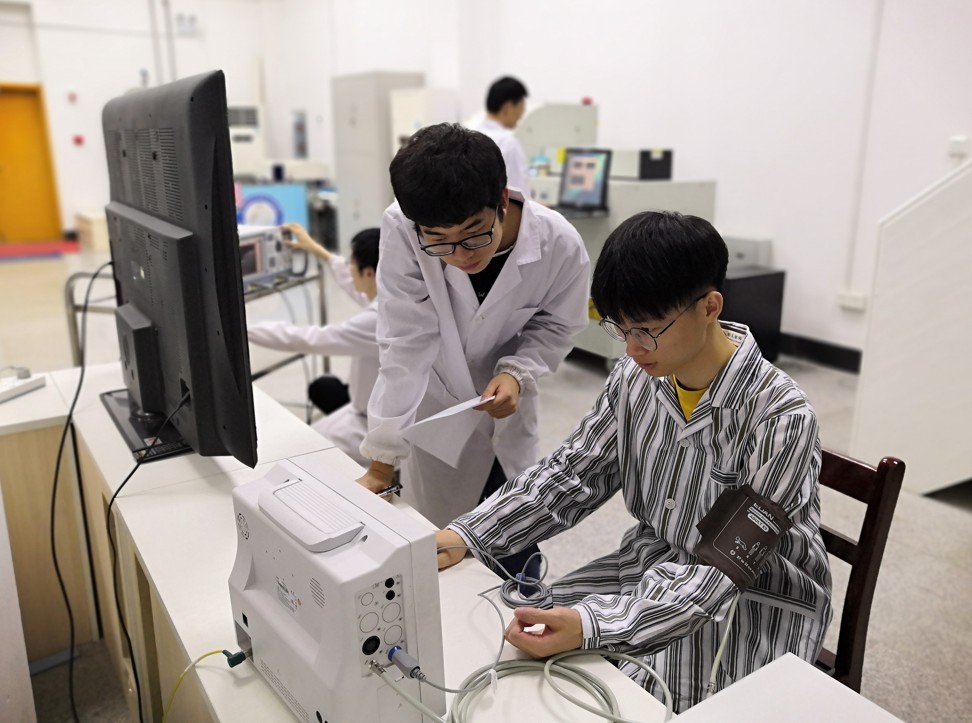
Under pressure: China’s PhD programmes exert heavy toll on students, yet many push on
- PhD students in China face outsize challenges as they try to complete their degrees, according to a survey by British scientific journal Nature
- Only 55 per cent of Chinese respondents felt at least partially satisfied with their academic experience, compared to 72 per cent outside the country
The journal’s fifth biennial doctoral student survey, which was translated into Chinese, attracted 690 responses from China – the highest number in the survey’s eight years, Nature said in a post on its website on Tuesday. From the rest of the world, 5,630 people responded.
The responses revealed that Chinese PhD students struggle with work-life balance, career guidance and emotional support, according to the journal.
Among Chinese respondents, only 55 per cent felt at least partially satisfied with their academic experience, compared with 72 per cent outside the country, and just 5 per cent in China said their programme exceeded expectations while the corresponding rate elsewhere was more than twice as high.
The number of Chinese students pursuing a doctorate degree has grown rapidly in the past few decades – there were only 18 PhD students enrolled in 1978, according to Nature, while 95,502 PhD students enrolled in 2018 according to figures from the Chinese Ministry of Education.
China still lags behind the US in terms of cutting edge scientific research activity, but it is quickly narrowing the gap. The Research Leadership Index (RLI) this year gave China a score of 139.68, up from 118.38 last year, and the US a score of 204.89, still higher than China but lower than its score of 227.39 the previous year.
The RLI, jointly reported by the Chinese Academy of Sciences (CAS) and US firm Clarivate Analytics, measures a country’s degree of research activity by taking into account the number of core scientific papers published and citing papers, as well as their respective citations.
China narrows gap with US in scientific research activity amid trade war
The US and China were ranked the top two countries in the RLI, followed by the UK, Germany and France with scores, respectively, of 80.85, 67.52 and 46.30.
China’s success in the research front may come at a cost: several respondents to the Nature survey complained that their lab felt more like a business operation than a training ground.
“The PI (principal investigator) has all of the power. Everyone else in the lab is just a factory worker,” Nancy Li, a master's student who dropped out of a PhD pharmacy programme at a leading Chinese university, was quoted as saying.
Pressure is built into the system in many ways, Di Chen, a cell biologist at Nanjing University, told survey conductors. “Graduate students from most institutions are required to have at least one first-authored paper with certain levels of impact factor to get their PhD degree,” he said. “Therefore, everyone has to be productive, which is nearly impossible.”

In China, 45 per cent of PhD respondents said that they were dissatisfied with their work-life balance, higher than 38 per cent in the rest of the world who shared that complaint.
Chen noted that the supervisors themselves are under pressure: “PIs are evaluated mainly based on publications, especially those from prestigious journals, which sometimes require very labour-intensive experiments.”
This may affect the amount of time PhD students get with their supervisors. Among Chinese respondents, 52 per cent said they had less than an hour of one-to-one time with their supervisor each week, compared to 49 per cent elsewhere.
Qilin Zhou, a chemist at Nankai University in Tianjin, said lofty initial expectations may also contribute to the disappointment PhD students feel: "Many students think scientific research is beautiful and romantic before entering the laboratory," he said, "when they start to do research, they will inevitably encounter various difficulties."
Under enormous challenges, 40 per cent of respondents from China said they had sought help for depression or anxiety caused by their PhD programme, more than the 36 per cent in other parts of the world. Yet, only 10 per cent said they had benefited from assistance at their home institution, lower than the 28 per cent outside China.

However, the survey also showed that students in China are less likely than students elsewhere to complain about mistreatment. Only 15 per cent reported bullying compared with 22 per cent elsewhere. Likewise, only 12 per cent reported discrimination or harassment, comparing favourably with the 22 per cent rate from other countries.
Furthermore, Chinese students appear to be more optimistic about their job prospects than those from the rest of the world. Seventy per cent of Chinese respondents said they think their PhD work will “substantially” or “dramatically” improve their job prospects, slightly more than the 66 per cent of their peers elsewhere.
Many of Chinese PhD students have aspirations to join academia – nearly 70 per cent said they would most like to work in academia after graduation, compared to 55 per cent of survey respondents in other countries.
In tightly regulated China, academia may appeal to those looking for more freedom and autonomy: one student wrote that compared with other sectors of Chinese society such as politics and industry, the academic system encourages “freedom, creativity, discovery, and a greater acceptance of unexpected failure”, while another singled out the opportunity for “independence and innovation”.
For more insights into China tech, sign up for our tech newsletters, subscribe to our award-winning Inside China Tech podcast, and download the comprehensive 2019 China Internet Report. Also roam China Tech City, an award-winning interactive digital map at our sister site Abacus.

